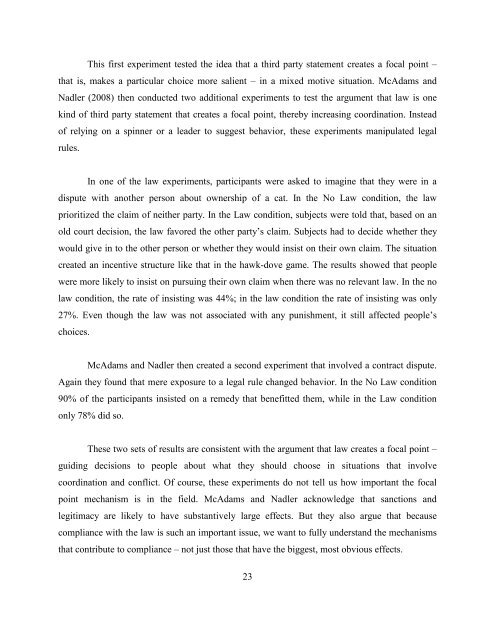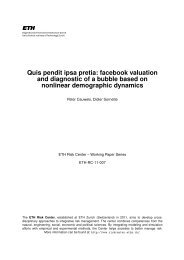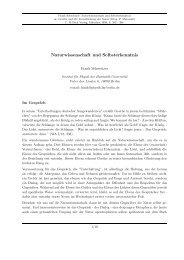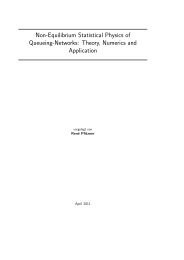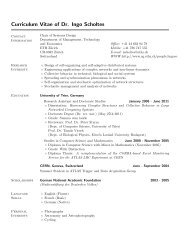Using Laboratory Experiments to Study Law and Crime - Chair of ...
Using Laboratory Experiments to Study Law and Crime - Chair of ...
Using Laboratory Experiments to Study Law and Crime - Chair of ...
Create successful ePaper yourself
Turn your PDF publications into a flip-book with our unique Google optimized e-Paper software.
This first experiment tested the idea that a third party statement creates a focal point –that is, makes a particular choice more salient – in a mixed motive situation. McAdams <strong>and</strong>Nadler (2008) then conducted two additional experiments <strong>to</strong> test the argument that law is onekind <strong>of</strong> third party statement that creates a focal point, thereby increasing coordination. Instead<strong>of</strong> relying on a spinner or a leader <strong>to</strong> suggest behavior, these experiments manipulated legalrules.In one <strong>of</strong> the law experiments, participants were asked <strong>to</strong> imagine that they were in adispute with another person about ownership <strong>of</strong> a cat. In the No <strong>Law</strong> condition, the lawprioritized the claim <strong>of</strong> neither party. In the <strong>Law</strong> condition, subjects were <strong>to</strong>ld that, based on anold court decision, the law favored the other party’s claim. Subjects had <strong>to</strong> decide whether theywould give in <strong>to</strong> the other person or whether they would insist on their own claim. The situationcreated an incentive structure like that in the hawk-dove game. The results showed that peoplewere more likely <strong>to</strong> insist on pursuing their own claim when there was no relevant law. In the nolaw condition, the rate <strong>of</strong> insisting was 44%; in the law condition the rate <strong>of</strong> insisting was only27%. Even though the law was not associated with any punishment, it still affected people’schoices.McAdams <strong>and</strong> Nadler then created a second experiment that involved a contract dispute.Again they found that mere exposure <strong>to</strong> a legal rule changed behavior. In the No <strong>Law</strong> condition90% <strong>of</strong> the participants insisted on a remedy that benefitted them, while in the <strong>Law</strong> conditiononly 78% did so.These two sets <strong>of</strong> results are consistent with the argument that law creates a focal point –guiding decisions <strong>to</strong> people about what they should choose in situations that involvecoordination <strong>and</strong> conflict. Of course, these experiments do not tell us how important the focalpoint mechanism is in the field. McAdams <strong>and</strong> Nadler acknowledge that sanctions <strong>and</strong>legitimacy are likely <strong>to</strong> have substantively large effects. But they also argue that becausecompliance with the law is such an important issue, we want <strong>to</strong> fully underst<strong>and</strong> the mechanismsthat contribute <strong>to</strong> compliance – not just those that have the biggest, most obvious effects.23


